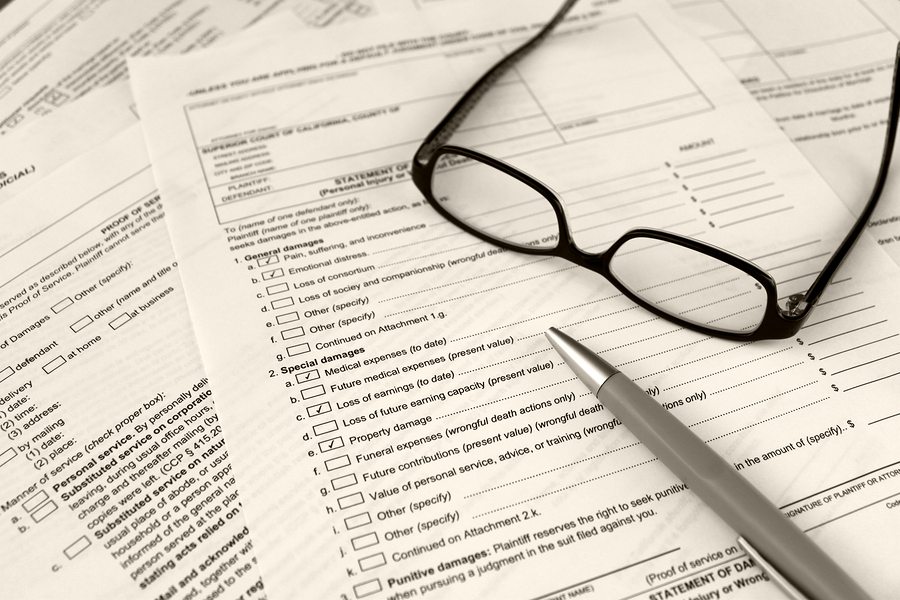Washington County, AR Workers’ Compensation Lawyer
Workers’ compensation, or “workers’ comp,” is the name of a system of insurance, where an employee cannot sue their employer for work-related injuries, but instead is covered by insurance. It used to be that employees could sue their employers if they were injured, but it usually required hiring an attorney, going to court, proving your employer’s negligence, and arguing that you do not fall into one of the rules that exempt employers from fault.
Today, there is no need to prove your employer was at fault for your injuries, nor that they were negligent – just that you have a work-related injury. This system allows for workers to, hopefully, get medical bills and wages reimbursed while they are out of work due to work-related injuries. Unfortunately, the system does not always work as smoothly as it is supposed to, and you may be denied workers’ comp benefits that you are in fact entitled to. In these situations, it is best to get a lawyer on your side. For help with Arkansas workers’ comp in Washington County, contact an experienced workers’ comp attorney like Ken Kieklak, Attorney at Law. Ken fights insurance and employers for workers’ comp benefits.
Who Runs Workers’ Comp?

If you live and work in Arkansas, then your workers’ comp likely is handled by the Arkansas Workers’ Compensation Commission (AWCC). Their website has a lot of helpful guides, as well as access to all of the forms and rules that are required to get Workers’ Compensation. For most people, getting through the forms might be enough of a justification to hire an attorney.
If you are a federal employee, such as workers at the federal offices in Fayetteville, railroad workers, or any postal workers, then your Workers’ Compensation is handled by the federal system. Their system is separate from the system that the rest of Arkansas’ workers would use, and more information can be found at their website.
Arkansas law requires almost every employer who has three or more workers to provide Workers’ Compensation insurance for their employees. This means that your employer pays for Workers’ Compensation insurance – none of it is paid for by the employees. The purpose of Workers’ Compensation is to provide a system to pay workers for their injuries and avoid sending each case to court. It works in a similar way to driver’s insurance, where instead of every case going to court, your insurance company pays for damage you cause in crash. The actual choice of what insurance company to use is up to the employer.
What Benefits Does Workers’ Compensation Provide?
Since Workers’ Compensation is an alternative to a lawsuit, it provides most of what would be provided to someone who is injured and starts a lawsuit. In a typical personal injury suit, you can receive a few different types of damages: reimbursement for medical bills, lost wages from your inability to work, damages for pain and suffering, and punitive damages used to punish very bad negligence. Under Workers’ Compensation, you are only entitled to medical bills and lost wages – that is one of the trade-offs of having a system that guarantees payouts without having to prove them in court.
For the most part, so long as your injury is work-related, workers’ comp will cover your medical bills and will continue to pay you while you are out of work. Unfortunately, there are usually a lot of limitations on these payments. For instance, the medical portion may require you to use the doctors chosen by your employer’s insurance company. This may not result in the best care possible, and you may ultimately want to pay out of pocket for better care. Additionally, instead of receiving your entire wage while you are out of work, usually Workers’ Compensation insurance only pays about 2/3 of your normal wages.
What Injuries are Covered?

In order to get an injury or illness covered it must be “work-related.” That does not just cover injuries that occur in the workplace, but also includes things that occur because of your work. For instance, straining your back lifting boxes at work is clearly covered, but lung cancer that forms after years of working with toxic chemicals should also be covered.
The following are not covered by workers’ comp, since they are not “work-related”:
- Injuries sustained outside of work
- Injuries due to drug or alcohol use on the job
- Injuries you cause yourself
- Injuries sustained during a crime
- Injuries while violating company policy
If you have questions about whether an injury would be covered, or why a claim you think should be covered was denied, it is best to check with an attorney.
Work With an Experienced Washington County Workers’ Comp Lawyer
If you are pursuing a workers’ comp claim in Washington County and need help filing or fighting for your claim, contact Ken Kieklak, Attorney at Law. Ken can help you submit your workers’ comp claim, or, if you have already submitted a claim and it was denied, Ken can fight to get your claim approved. For a consultation, call (479) 316-0438.
